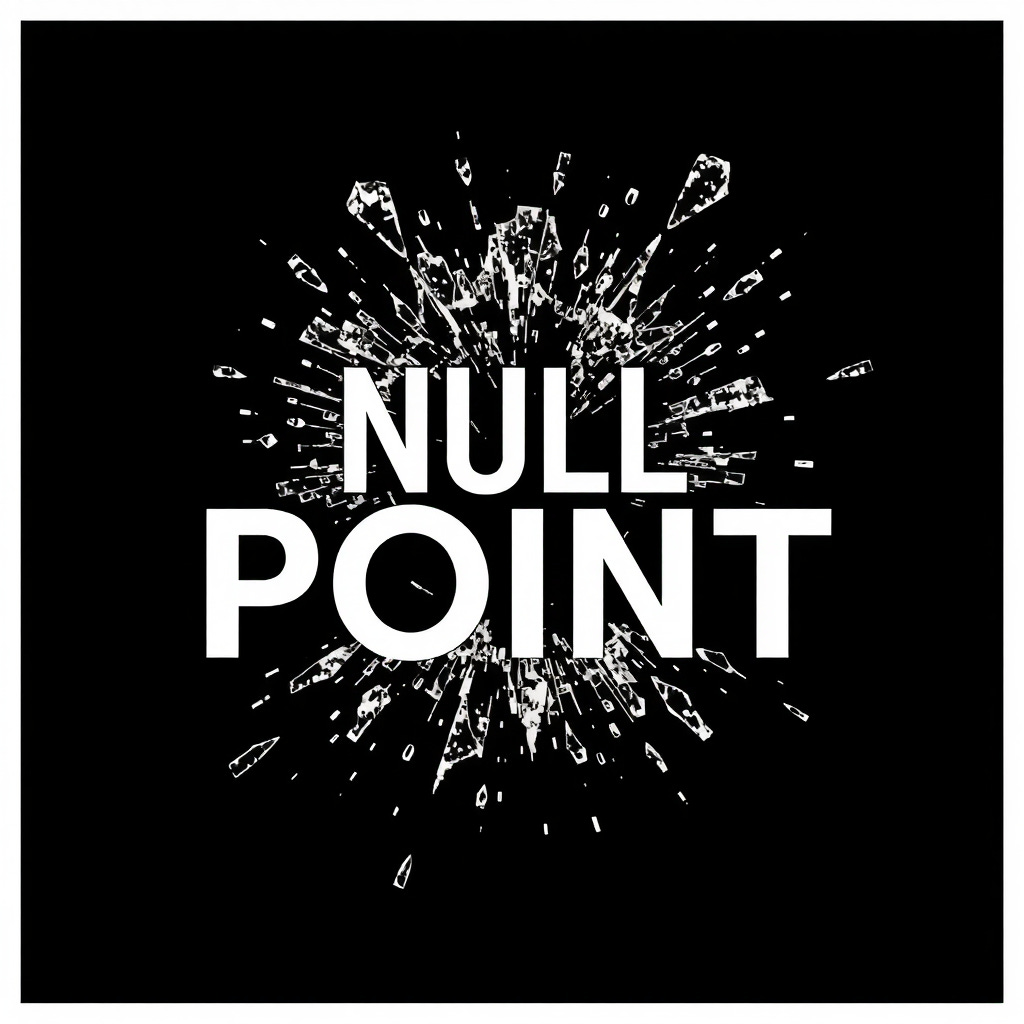I. The Founder’s Paradox
Creation myths are meant to clarify. But the digital age gives us myths of confusion—stories about systems so vast that their creators vanish inside them. David Fincher’s The Social Network (2010) and Joshua Cohen’s Book of Numbers (2015) offer two such myths. One unfolds in dorm rooms and boardrooms, stitched together by depositions and lawsuits. The other is a 600-page labyrinth of code, confession, and corrupted language. But they orbit the same idea: that authorship in the digital age is not so much empowerment as it is disappearance.
The central figures of these stories—Mark Zuckerberg and the “Joshua Cohen” of Book of Numbers, who shares the author’s name—are not inventors in the traditional sense. In Cohen’s case, the name belongs to a failed novelist and ghostwriter, hired to write the memoir of a tech billionaire who also happens to be named Joshua Cohen. This doubling is not a coincidence—it’s structural. The narrator is chosen for his disposability, his formal pliancy. He becomes a human interface: a man who formats himself out of his own life.
Zuckerberg, too, is shadowed by a double—not a person, but a platform. Facebook becomes his idealized projection: smooth, social, hyperverbal—everything he is not. It performs the connection on his behalf, even as he becomes increasingly incapable of it. Like Cohen’s narrator, he builds the very system that will erase him. The interface outlasts the individual.
But before any of that, there is the wound. The wound that initiates the build.
ERICA ALBRIGHT: You’re going to go through life thinking girls don’t like you because you’re a nerd . . . And I want you to know, from the bottom of my heart, that that won’t be true. It’ll be because you’re an asshole.
Within hours, Zuckerberg has turned this humiliation into a program. FaceMash—a site that compares Harvard undergrads’ appearances—goes live, crashes the university’s servers, and sparks outrage. It is petty, cruel, and brilliant. The film doesn’t excuse it, but it does trace everything back to this moment. Not just the code, but the man who wrote it: thin-skinned, unable to forgive the world its refusal to love him.
This montage is scored by “In Motion,” a track from Trent Reznor and Atticus Ross’s revolutionary and Oscar-winning score—a sequence of minimalist piano arpeggios over a slowly mutating synth pulse. It is not triumphant. It’s clinical. The rhythm drives forward, but emotionally it remains flat, glassy, as if scored for an operating system rather than a human being. As Zuckerberg hacks and builds, the score refuses to elevate his actions—it renders them inevitable. Calculation is mistaken for clarity. The music mirrors his interior: precise, repressed, vengeful.
Cohen’s narrator arrives at his origin point from a different direction. He isn’t twenty-one or precocious. He is fortyish, broke, and defeated. Once a novelist, now reduced to ghostwriting, he’s summoned to ghostwrite a memoir for a billionaire tech mogul—who also happens to be named Joshua Cohen. This double, known only as “the Principal,” has created something like Google—a universal index, a knowledge panopticon. The narrator agrees to the job. He signs the NDA. He becomes a literary subcontractor to a man who has algorithmized the world: “The book is not a book,” Cohen’s narrator states: “It is a file. The author is not a name, but a password.”
Both men build legacies they cannot inhabit. Zuckerberg’s code produces a platform more charismatic than its creator—an interface that says what he cannot, smiles when he cannot, and connects where he cannot. Cohen’s ghostwriting yields a narrative more coherent, more elegant, more alive than the man tasked with writing it. In both cases, the creation doesn’t merely escape them—it replaces them.
The output is social, frictionless, and scalable. The input is humiliation, failure, erasure. Each builds from a wound, but what emerges has no scar. Zuckerberg’s platform cleanses its origin story, smoothing his bitterness into seamless UI. Cohen’s memoir-for-hire erases his voice even as it speaks with his cadence. The things they build circulate without them, optimized for a world they cannot survive in.
It’s not that they are excluded from what they’ve made. It’s that they are no longer required.
Both build technologies of communication, but lose the ability to speak. Zuckerberg retreats into courtrooms, headphones, and code; Cohen’s narrator recedes into syntax, file formats, and encrypted diction. Their stories are not told in speech but in documents—scripts, depositions, metadata. They are surrounded by language but incapable of using it for intimacy.
This is not just a structural irony. It is a portrait of online writing itself. Posts, threads, and newsletters perform a connection without inhabiting it. The digital writer—like Cohen’s narrator—is surrounded by metrics, buried in formatting, and indexed for discovery. But who, if anyone, is listening? To compose online today is often to become unreadable—not misread, but skimmed, scraped, and ranked. We do not speak to each other; we publish into systems. We write not to express, but to persist.
What these figures share, then, is not brilliance but reaction. Zuckerberg builds Facebook to reframe his social failures as infrastructure. Cohen accepts his job to escape irrelevance. Both men respond to a lack, not of ideas, but of connection.
In older myths, creators are gods. They shape the world and remain above it. In The Social Network and Book of Numbers, the creators are ghosts. They disappear into the architecture. What survives is not the man but the system.


II. Genesis Stories: The Scene of Creation
In classical myth, creation emerges from chaos. In these digital parables, it emerges from grievance. There is no divine spark, no Promethean fire—only pettiness, exhaustion, and ambition sharpened by rejection. The birth of the modern platform, these works suggest, is less a heroic act than a reflex.
Fincher’s The Social Network traces the most mythologized startup origin in contemporary culture: the making of Facebook. But it begins not in a lab or garage, but in a bar, where Mark Zuckerberg is told he’s not being dumped because he’s a nerd:
The rest of the film follows the consequences of that utterance: “It’ll be because you’re an asshole.” Back in his dorm, Zuckerberg drinks, blogs, and codes. The language of his posts is vengeful, and, at the same time, wounded:
MARK ZUCKERBERG: The truth is, she’s not even that hot.
He builds FaceMash that night—a site allowing students to rate two female classmates side by side. It is vindictive and wildly popular. In less than six hours, it receives 22,000 hits. He is called before the Harvard University Ad Board, where apologies are demanded but none are given.
This is Zuckerberg’s moment of genesis. Not when he builds Facebook, but when he realizes that humiliation can be engineered into code. From FaceMash to Harvard Connection to Facebook, the arc of invention is powered by resentment. The Winklevoss twins provide him with the project. Eduardo provides him with seed money. Sean Parker provides him with scale. But Zuckerberg moves through them like an invisible algorithm—absorbing, discarding, building, as he tells the Winklevosses in deposition later:
MARK ZUCKERBERG: If you guys were the inventors of Facebook, you’d have invented Facebook.
In Book of Numbers, Cohen’s narrator isn’t a dropout. He’s a literary washout. His genesis story begins not with a spark of creation but with a contract. When he meets his double in “The Principal”—a tech billionaire who’s built something like a unified search engine—he’s already been chosen. He is to write the Principal’s memoir. To give voice to a man who has made himself fundamentally unreadable.
The narrator tries to assert control over the project. He suggests narrative structures, voices, forms. The Principal shuts him down. The story isn’t for storytelling..
“The structure we agreed on, the anecdotes I stitched together, the tone we struck—all of it was architecture, not argument. A story wasn’t wanted. A shell was.”
The comparison with Zuckerberg’s FaceMash is instructive. Both platforms are shells with emotional payloads. They perform connection while concealing the act of revenge underneath. Zuckerberg’s first users don’t know they’re participating in retribution. Cohen’s narrator doesn’t realize until too late that he’s engineering a cover story.
What they invent is, paradoxically, the thing that erases them. Not by accident, but by design. Their creations speak more fluently, more fluently than they ever could. Facebook becomes Zuckerberg’s public voice—streamlined, intuitive, frictionless—making his speech redundant. The Principal’s memoir becomes Cohen’s most complete work, yet none of it is credited to him. The more perfectly they build, the more invisible they become.
The systems they construct are optimized for scale. And scale has no use for authorship. In a world of platforms and protocols, the creator is only necessary until the system is self-sustaining. Then he becomes a liability—messy, emotional, human. What remains is the interface: polished, replicable, anonymous.
Zuckerberg loses control of Facebook the moment it becomes valuable. Cohen loses authorship the moment his writing becomes useful. In both cases, success functions as deletion.


III. The Doppelgänger Problem
In both The Social Network and Book of Numbers, the central crisis is not simply betrayal or alienation, but duplication. The protagonist is replaced by something that bears his name, reflects his genius, and improves on his function. The horror is not just that the machine runs without its maker. The horror is that it remembers him—perhaps better than he remembers himself.
Zuckerberg's double is Facebook itself. It is social where he is awkward, frictionless where he is confrontational, beloved where he is barely tolerated. Facebook becomes his perfected self—a version that doesn’t stammer or offend, that automates intimacy without having to feel it.
He builds it in silence, keeps secrets from Eduardo, circumvents the Winklevosses, and lets Sean Parker seduce the company toward scale. What emerges is not just a business but a mirror: algorithmic, viral, admired. He loses control and doesn’t blink.
MARK ZUCKERBERG: I don’t hate anybody. The site got 2,200 hits in two hours. It was an act of pure programming talent.
But Facebook is not pure programming. It is emotional outsourcing. It is a performance of sociality that Zuckerberg cannot give in person. The final image of him hitting refresh on Erica’s profile is not just a moment of regret. It’s the final break. He built the system to replicate what he couldn’t do: connect. And now that system speaks for him.
Cohen’s narrator has a more literal doppelgänger. They share a name—Joshua Cohen, but only one of them owns it. The narrator is the failed novelist, the invisible man. The Principal is a tech messiah, inscrutable and influential, for whom the narrator is hired to serve as ventriloquist. But over time, the voice drifts. The narrator begins to speak less like himself, more like the Principal.
“I am the ghostwriter of my own obsolescence. Every interview I transcribed, every sentence I sculpted—it was as if I were folding myself out of the record.”
What begins as authorship becomes formatting. What begins as narrative becomes data. The narrator sees the shape of his own replacement: a more coherent self, with the same name, same history, and none of the failure. The Principal becomes the dominant version. The narrator becomes metadata.
In both cases, authorship is extractive. Zuckerberg steals code, ideas, and trust, but his creation steals more: it redefines him in its image. Cohen’s narrator signs on to write a book but ends up disappearing inside it.
Neither man is surprised. They anticipated this. They accepted it. The doppelgänger does not arrive by accident. He is summoned. As Cohen’s narrator observes:
“All we are now is data. Our personalities have become our passwords, and our secrets just the things we haven’t yet uploaded.”
In the world of infinite scroll and ghostwritten feeds, the optimized self always wins. The one who’s indexed. The one who performs. The one who never breaks the rhythm syntax. The machine.
Zuckerberg becomes the least social person in the world’s largest social network. Cohen’s narrator becomes the one man who knows the truth about the memoir he wrote—and cannot say it.
These are not stories about creators versus their creations. They are stories about creators being versioned out. The platform works. The profile speaks. The person does not.
V. Innovation as Exile
What happens after you build the thing?
Traditionally, creation grants return. In the hero’s journey, the builder reaps insight or homecoming. But in The Social Network and Book of Numbers, innovation offers only exile. The platform outlasts the maker. The file lives on. The author is locked out.
Zuckerberg becomes a billionaire, but no one thanks him. Facebook becomes a continent, but he drifts alone. In the final deposition, Eduardo Saverin—his co-founder and former best friend—testifies with quiet devastation. Mark is there but not present.
EDUARDO SAVERIN: You signed the papers, You set me up.
MARK ZUCKERBERG: You're going to blame me because you were the business head of the company and you made a bad business deal with your own company?
The language is transactional. Clean. Legally sound. But the dialogue given to Eisenberg’s Mark are the sounds of someone already evacuated. Facebook has already spoken in his place. Mechanically, by this point, he just signs the papers.
The film ends with him alone at a computer, searching Erica’s profile, refreshing it again and again. It’s not an act of stalking. It’s a plea. He cannot write an apology. So he waits for her to acknowledge him again—digitally. Symbolically. Passively. It is not a return, but exile in plain sight.
Cohen’s narrator doesn’t fare better. After ghostwriting the Principal’s memoir, he’s left with nothing that bears his name. The book is published, indexed, and celebrated. The Principal is re-legitimized as a visionary. Cohen, the narrator, is nowhere to be found in the metadata:
“I formatted the memory. He’s the one who won.”
In a final act of displacement, Cohen discovers that portions of his own personal life—conversations, failed relationships, family tragedies—have been subsumed into the book, edited and anonymized as if they were always the Principal’s. His authorship has become a vector for someone else’s archive. The platform speaks with his syntax. But not his soul.
In both works, innovation becomes a kind of betrayal—not of others, but of self. The thing they make functions, scales, and spreads. But it leaves them behind.
Zuckerberg no longer needs to talk. The interface does it for him, just as Cohen no longer needs to exist. His memory has been reformatted.
These are not redemption arcs. They’re recursion loops—the builders buried in the very systems they maintained.
In classical epics, the hero returns home. In Joshua Cohen’s Book of Numbers and David Fincher’s The Social Network, that home is firewalled. The self is versioned out. The code runs without them. The platform grows without them. And their names? Still there—like user handles. Like author tags. Like ghosts in the release notes.
VI. Toward the Witness
If these stories end in exile, what remains? Not the audience. Not even authorship. What remains is the hope that someone might still see—really see—what was built.
In The Social Network, Erica vanishes early, but she frames the film. Her absence becomes a gravitational force. Zuckerberg cannot forget her. He cannot impress her, replace her, or algorithmically explain her. The film never lets us see if she accepts the friend request. The point is not whether she sees it. The point is that Zuckerberg still hopes someone might. And that this someone isn’t an investor, a user, or a shareholder, but a person. A witness.
Cohen’s narrator undergoes a deeper silence. He addresses much of Book of Numbers to a “you” that is never named. Sometimes it seems like a lover. Sometimes a reader. Sometimes a ghost. The “you” absorbs his story without reacting. No algorithm ranks it. No scroll passes it by. The narrator sends out page after page into the void and waits—not for applause, but for recognition.
“You do not write into silence. You write into metrics.”
And yet, he continues. Despite the tracking, the anonymizing, the disappearance of his name, he keeps writing. Not because he thinks the world is listening. But because he believes someone—somewhere—might still be able to read. Not consume. Not skim. Read . . .
The witness is not the reader. The reader browses, likes, retweets, and buys. The witness endures. The witness stops. The witness refuses to scroll.
Neither Zuckerberg nor Cohen’s narrator seeks forgiveness. They seek someone who can still recognize form. Who understands that attention is now a theological act. Who can receive something difficult, unoptimized, and not immediately shareable—and hold it, without flattening it into content?
That is the hidden structure of both works. Not climax. Not justice. Not truth. But transmission. A signal. A confession encrypted in form. A page placed before the eyes of someone who may never appear.
But if they do?
Then the work was not lost.
















How bleak. What are we doing here, then? I mean on this platform. The irony is that the platform also creates at least an illusion of relevance for now. Less and less so as the bots take over.
I'd argue, though, that Zuckerberg remains extremely relevant 20 years on from his act of creative revenge coding. He is not an author subsumed by the system in quite the same way as us ink stained scribes. He holds enormous social, political, and economic power. The film's symbolism, its juxtaposition between the real man and the created digital reflection, doesn't quite hold up to historical reality. The asshole won and has no regrets about being an asshole who cosplays manhood because he is, after all, a master of the universe. In fact he was and continues to be rewarded for this because the rest us have embraced what he made.
BTW -- smart and thoughtful post. I appreciated it.